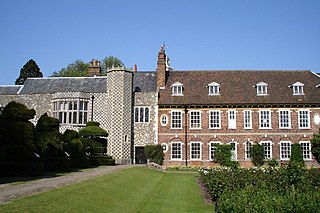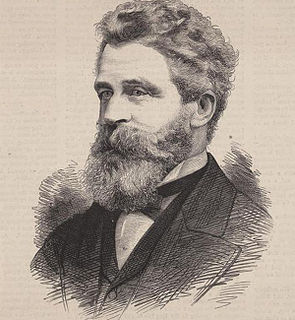
There have been ten baronetcies created for persons with the surname Browne, six in the Baronetage of Great Britain, three in the Baronetage of Ireland and one in the Baronetage of Nova Scotia. Only one creation is extant as of 2010. Three of the creations were for members of the Browne family headed by the Viscount Montagu.
There have been a number of creations of baronets with the surname Smith.

The Strachey baronetcy, of Sutton Court in the County of Somerset, England, is a title in the Baronetage of the United Kingdom. This family was originally seated at Walden, Essex, where William Strachey was living under the rule of Edward VI. Later they moved to Surrey and at last settled at Sutton Court, Somerset. The title was created on 15 June 1801 for the politician and civil servant Henry Strachey. Sir Henry was private secretary to Lord Clive during his last expedition to India in 1764. He also took part in negotiations for peace with North America where he assisted the kings commissioners at Paris. He died in 1809 and was succeeded by his eldest son Henry, the second Baronet Strachey. His great-grandson, the fourth Baronet, was a Liberal politician. On 3 November 1911, he was created Baron Strachie, of Sutton Court in the County of Somerset, in the Peerage of the United Kingdom. He later served as Paymaster-General. The peerage became extinct on the death of his son, the second Baron, in 1973. The late Baron was succeeded in the baronetcy by his first cousin once removed, the sixth Baronet. He was the son of John Strachey, son and namesake of John Strachey, second son of the third Baronet. Strachey died January 2014 and did not use his title. Also, he had not successfully proven his succession and was therefore not on the Official Roll of the Baronetage, with the baronetcy considered dormant.

There have been two Baronetcies created for persons with the surname Austen, one in the Baronetage of England and one in the Baronetage of Great Britain. Both creations are extinct.

There have been nine baronetcies created for persons with the surname Anderson, four in the Baronetage of England, one in the Baronetage of Great Britain and four in the Baronetage of the United Kingdom. All creations are extinct.

There have been three baronetcies created for members of the Ingilby/Ingleby family, one in the Baronetage of England, one in the Baronetage of Great Britain and one in the Baronetage of the United Kingdom. The latter title is extant while the other two creations are extinct.
Sir Isaac Astley, 1st Baronet was an English baronet.
There have been nine baronetcies created for persons with the surname Lloyd, three in the Baronetage of England, three in the Baronetage of Great Britain and three in the Baronetage of the United Kingdom. Two of the creations are extant as of 2010.

There have been two baronetcies created for persons with the surname Brograve, one in the Baronetage of England and one in the Baronetage of Great Britain. Both creations are extinct.
Four baronetcies have been created in the surname of Fowler, all of which are now extinct.
There have been nine baronetcies created for persons with the surname Moore, two in the Baronetage of England, one in the Baronetage of Ireland, two in the Baronetage of Great Britain and four in the Baronetage of the United Kingdom. As of 2014 two creations are extant and one considered dormant.

There have been nine baronetcies created for persons with the surname Cooper, one in the Baronetage of England, one in the Baronetage of Ireland and seven in the Baronetage of the United Kingdom.
There have been three baronetcies created with the surname Shirley, two in the Baronetage of England and one in the Baronetage of Great Britain. Only the first creation remains extant as of 2016.
There have been three baronetcies created for persons with the surname Cooke, two in the Baronetage of England and one in the Baronetage of Ireland. One creation is extant as of 2013.

There have been six baronetcies created for members of the Corbet family, four in the Baronetage of England, one in the Baronetage of Great Britain and one in the Baronetage of the United Kingdom. All creations are extinct. The recipients were descendants of the ancient Norman family of Corbet which held substantial estates in Shropshire including Wattlesborough, Caus Castle, Moreton Corbet Castle and Acton Reynald Hall.
There have been six baronetcies created for persons with the surname Price, one each in the baronetages of England and of Great Britain and four in the baronetage of the United Kingdom. Two of the creations were extant as of 2008.

There have been five baronetcies created for members of the old established family of Peyton of Peyton Hall in the parish of Boxford in Suffolk, all of whom were descended from Sir Robert Peyton (d.1518) of Isleham in Cambridgeshire, grandson and heir of Thomas Peyton (1418–1484) of Isleham, twice Sheriff of Cambridgeshire and Huntingdonshire, in 1443 and 1453. All the baronetcies are extinct.
The Baronetcy of Dukinfield of Dukinfield, Cheshire was created in the Baronetage of England on 16 June 1665 for Robert Dukinfield, son of Colonel Robert Dukinfield.

There have been four baronetcies created for members of the Slingsby family who settled at Scriven Hall, Scriven, Knaresborough, Yorkshire in the 14th century.
There have been six baronetcies created for persons with the surname Wright, three in the Baronetage of England, two in the Baronetage of Great Britain and one in the Baronetage of the United Kingdom. All creations are extinct.










